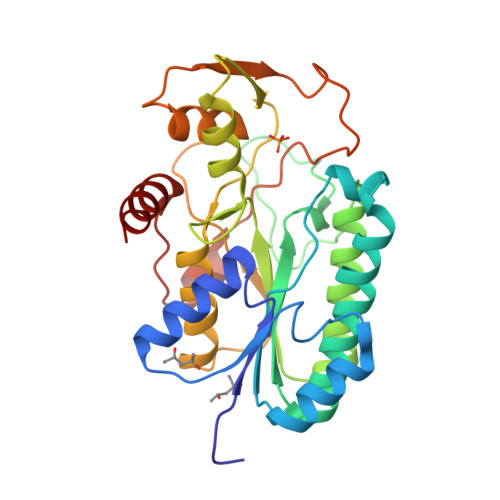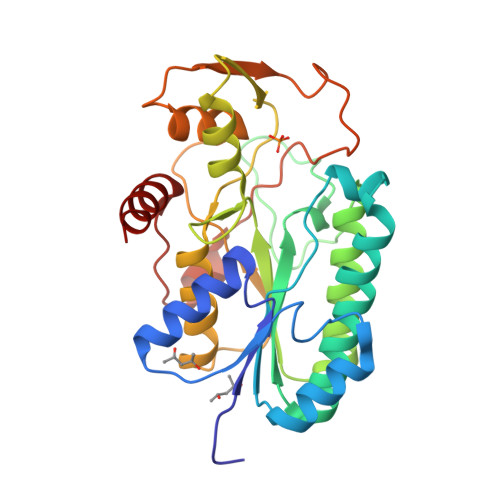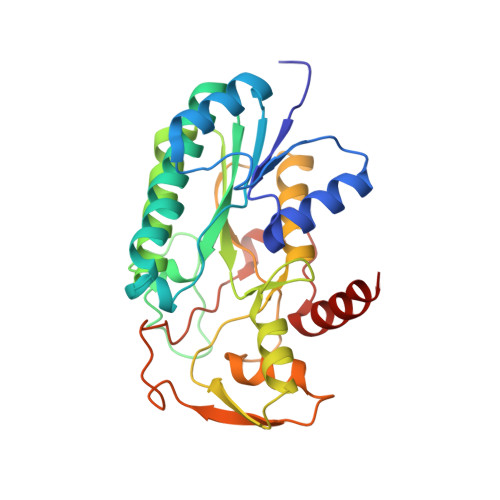GacA is essential for Group A Streptococcus and defines a new class of monomeric dTDP-4-dehydrorhamnose reductases (RmlD).
van der Beek, S.L., Le Breton, Y., Ferenbach, A.T., Chapman, R.N., van Aalten, D.M., Navratilova, I., Boons, G.J., McIver, K.S., van Sorge, N.M., Dorfmueller, H.C.(2015) Mol Microbiol 98: 946-962
- PubMed: 26278404
- DOI: https://doi.org/10.1111/mmi.13169
- Primary Citation of Related Structures:
4WPG - PubMed Abstract:
The sugar nucleotide dTDP-L-rhamnose is critical for the biosynthesis of the Group A Carbohydrate, the molecular signature and virulence determinant of the human pathogen Group A Streptococcus (GAS). The final step of the four-step dTDP-L-rhamnose biosynthesis pathway is catalyzed by dTDP-4-dehydrorhamnose reductases (RmlD). RmlD from the Gram-negative bacterium Salmonella is the only structurally characterized family member and requires metal-dependent homo-dimerization for enzymatic activity. Using a biochemical and structural biology approach, we demonstrate that the only RmlD homologue from GAS, previously renamed GacA, functions in a novel monomeric manner. Sequence analysis of 213 Gram-negative and Gram-positive RmlD homologues predicts that enzymes from all Gram-positive species lack a dimerization motif and function as monomers. The enzymatic function of GacA was confirmed through heterologous expression of gacA in a S. mutans rmlD knockout, which restored attenuated growth and aberrant cell division. Finally, analysis of a saturated mutant GAS library using Tn-sequencing and generation of a conditional-expression mutant identified gacA as an essential gene for GAS. In conclusion, GacA is an essential monomeric enzyme in GAS and representative of monomeric RmlD enzymes in Gram-positive bacteria and a subset of Gram-negative bacteria. These results will help future screens for novel inhibitors of dTDP-L-rhamnose biosynthesis.
Organizational Affiliation:
University Medical Center Utrecht, Medical Microbiology, Heidelberglaan 100, 3584 CX, Utrecht, The Netherlands.





















